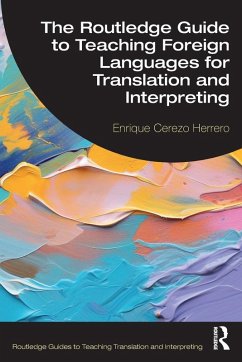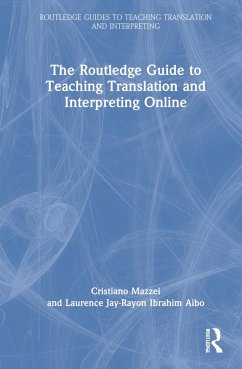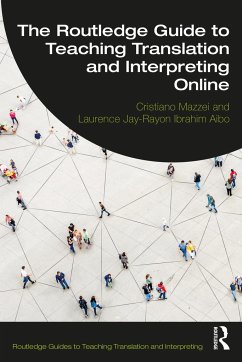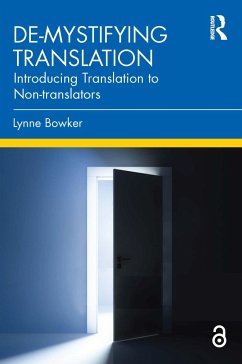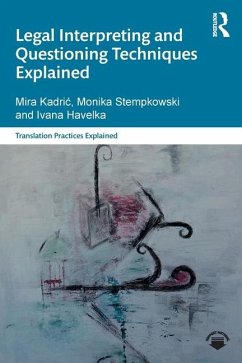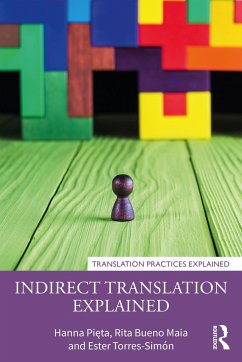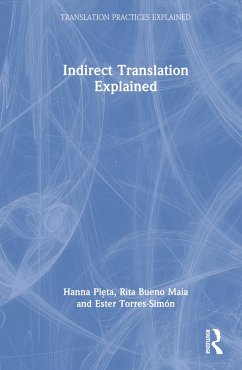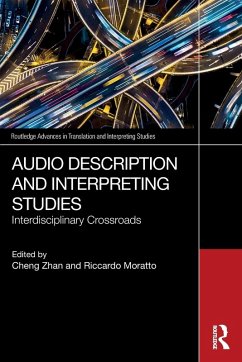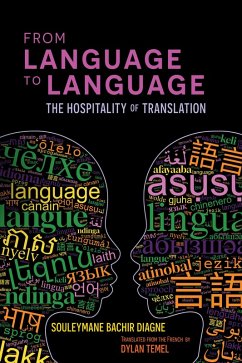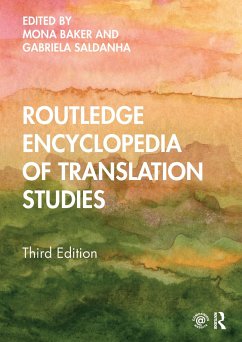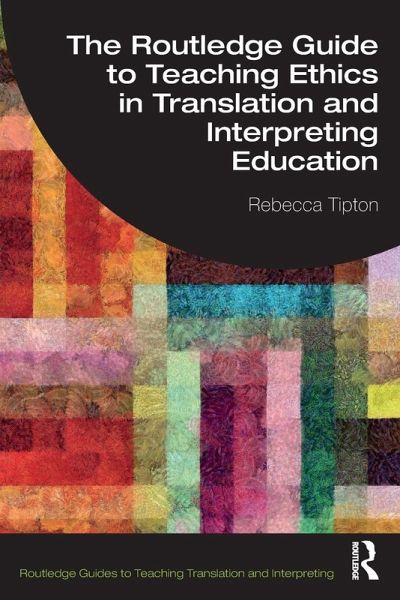
The Routledge Guide to Teaching Ethics in Translation and Interpreting Education
Versandkostenfrei!
Versandfertig in 6-10 Tagen
42,99 €
inkl. MwSt.
Weitere Ausgaben:

PAYBACK Punkte
21 °P sammeln!
Routledge Guides to Teaching Translation and Interpreting is a series of practical guides to key areas of translation and interpreting for instructors, lecturers, and course designers.This book provides university-level educators in translation and interpreting with a practical set of resources to support a pedagogically engaged approach to ethics.Encompassing critical engagement and reflection, the resources have been designed to be easily developed and adapted to specific teaching contexts. The book promotes an integrated approach to ethics teaching. Its core goals are to improve the quality...
Routledge Guides to Teaching Translation and Interpreting is a series of practical guides to key areas of translation and interpreting for instructors, lecturers, and course designers.
This book provides university-level educators in translation and interpreting with a practical set of resources to support a pedagogically engaged approach to ethics.
Encompassing critical engagement and reflection, the resources have been designed to be easily developed and adapted to specific teaching contexts. The book promotes an integrated approach to ethics teaching. Its core goals are to improve the quality of student learning about ethics, develop confidence in ethical decision-making, and enhance a commitment to ethics beyond the programme of study.
The approach includes emphasis on problems of practice, or "ethical dilemmas", using real-world examples, but simultaneously encompasses a more wide-ranging set of ethical questions for both educators and their students. Including chapters on the ethical implications of using technology and the ethics involved in assessment and feedback, equal weight is given to both translation and interpreting.
Providing a key point of reference for information on different theories of ethics, insight into pedagogical practices around the globe, and practical guidance on resource development for classroom use and extension activities for independent learning, this is an essential text for all instructors and lecturers teaching ethics in translation and interpreting studies.
This book provides university-level educators in translation and interpreting with a practical set of resources to support a pedagogically engaged approach to ethics.
Encompassing critical engagement and reflection, the resources have been designed to be easily developed and adapted to specific teaching contexts. The book promotes an integrated approach to ethics teaching. Its core goals are to improve the quality of student learning about ethics, develop confidence in ethical decision-making, and enhance a commitment to ethics beyond the programme of study.
The approach includes emphasis on problems of practice, or "ethical dilemmas", using real-world examples, but simultaneously encompasses a more wide-ranging set of ethical questions for both educators and their students. Including chapters on the ethical implications of using technology and the ethics involved in assessment and feedback, equal weight is given to both translation and interpreting.
Providing a key point of reference for information on different theories of ethics, insight into pedagogical practices around the globe, and practical guidance on resource development for classroom use and extension activities for independent learning, this is an essential text for all instructors and lecturers teaching ethics in translation and interpreting studies.





